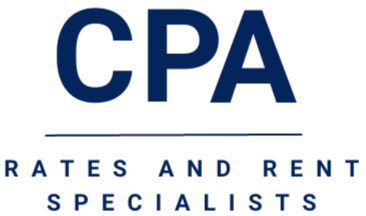Business Rates: The most important cut that Government can make.
- Ruori McMahon

- Jul 27, 2022
- 2 min read
Updated: Jul 28, 2022

Last month we wrote an article about the Tory leadership race, and if there were any candidates calling for significant business rates reform.
At the time, there were ten hopeful MP's staking their claim. A number that's now been whittled down to two. Rishi Sunak and Liz Truss.
We've had a look into what each candidate has publicly promised, and we're still concerned about the lack of mention given to the business rates sector.
But why are big names such as Tesco, Greggs, and Morrisons calling business rates the most important cut that any future government can make?
Neither candidate is keeping the high street in focus.
By far, the biggest cut that both candidates have included in their manifestos is to corporation tax. But as corporation tax is based on net profit - something that high streets haven't seen much of over the past two years - many retailers won't feel much relief.
The Retail Jobs Alliance, formed from household companies such as Sainsbury's, Waterstones, and the Co-Op, has highlighted the need to focus on a business rates cut if the high street is to recover.
And the Retail Job allowance isn't the only organisation calling out for reform.
The British Beer and Pub Association has renewed its call for business rates reform, as the Department For Levelling Up Housing And Communities "Business Rates Revaluation 2023" closed 25/07/22 with no major breakthroughs.
What difference would business rates reform make?
A recent report from the RJA illustrated what could happen if the £17.2 Billion cost of reversing a 6% increase to cooperation tax was instead applied to business rates reform.
Analysis showed that you could completely remove the burden of business rates on all retail properties in England, while still cutting cooperation tax by 2%. A move such as this would help 197,000 struggling retail businesses continue to trade.
On average, we can reduce our client's business rates by between 12 and 20 percent. A 20% cut in business rates for every single commercial premises liable for business rates would cost £7.3 billion.
So prime minister candidates could do our job for us, and still have £10 billion left to spend on cooperation tax cuts. It certainly sounds to us like a business rates reform should be far higher on the priority list than it currently is.
What can you do right now?
Many businesses can't wait for the Conservative party to find a new leader, with thousands of commercial properties entering insolvency while waiting for the result of a business rates appeal.
This is further exhibited by the back and forth between business and council/VOA when going through the check/challenge/appeal process.
Most of the time, further evidence is required to back up a claim at multiple stages during the process. To help prevent stretching out an already convoluted system even further, make sure you know the evidence you'll need to provide before beginning the appeal process.
If you need help or advice on submitting your appeal, feel free to get in touch.



